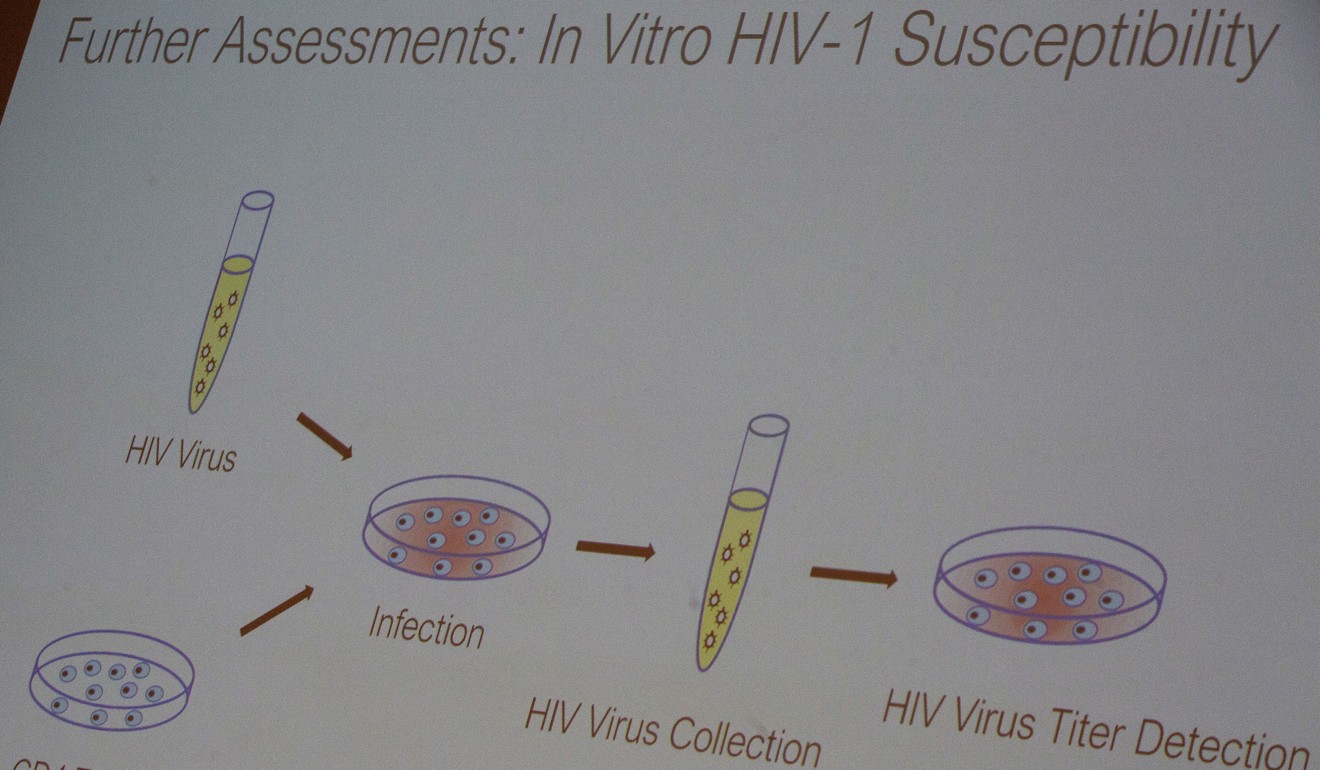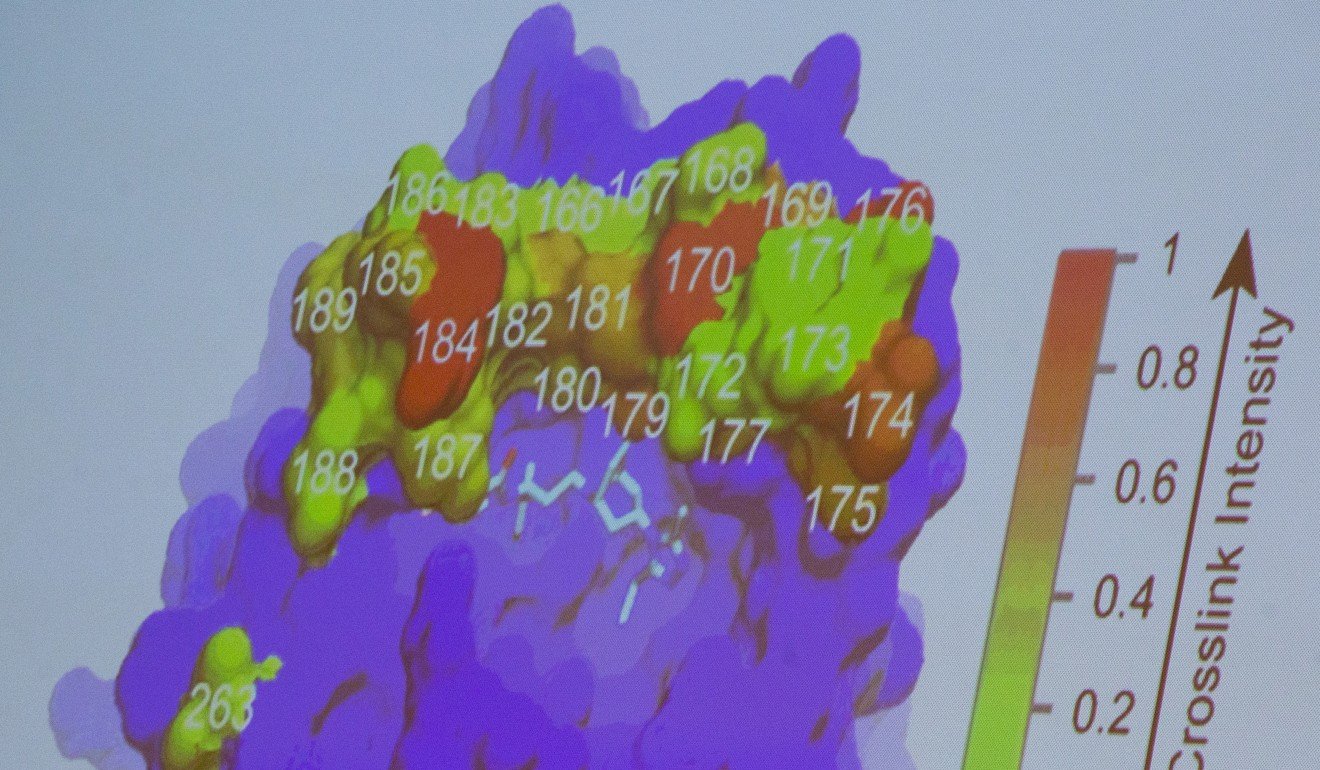
What do we know about Chinese scientist He Jiankui’s claim to have created the first genetically modified babies who are immune to HIV?
- Controversial experiment involved altering DNA of twin girls to disable specific gene that allows HIV to infect human cells
- It drew global condemnation, with experts saying such research was unethical as children could die from unknown side effects and technology could be abused
Chinese scientist Dr He Jiankui shocked the world when he claimed he had created the first genetically modified babies on Monday.
The controversial experiment involved altering the DNA of twin girls, Lulu and Nana, to disable a specific gene that allows HIV to infect human cells.
It drew worldwide condemnation, with experts pointing out such research was unethical because children born using it could die from unknown side effects and the technology could be abused.
At the Second International Summit on Human Genome Editing in Hong Kong on Wednesday, He attempted to address unanswered questions.
How many people were involved in this experiment and how did he get consent?
A total of eight couples – with HIV negative mothers and HIV positive fathers – signed up voluntarily for the experiment, after being recruited by an HIV/Aids volunteer group. One couple later dropped out.
The clinical trial has since been put on hold after the controversy broke, but He also revealed there was another potential pregnancy of a gene-edited embryo.
In this specific case, Lulu and Nana’s parents were volunteers with a good educational background, according to He.
The couple had gone through two rounds of informed consent with He and a team member from his lab. The consent was reviewed by four people.
The couple was given time to discuss their decision privately afterwards.
Why did he do it?
In response to comments on whether the research was targeting an unmet medical need, He said: “I believe this is not just for this case, but millions of [HIV-exposed, uninfected] HEU children.
“They need this protection since a HIV vaccine is not available. I have personally experienced an Aids village where 30 per cent of the residents were infected. They have to give their children to relatives to raise just to prevent potential transmission.”

How was the experiment conducted?
He began the project three years ago. The team first studied the CCR5 gene in mice, then monkeys before looking to see if it could be conducted on human embryos.
For Lulu and Nana’s case, the CCR5 gene was shortened in one case, while it was cut out in the other case.
Was it ethical and did it go through a peer review?
He said he had consulted “top ethicists” in the United States, including from Stanford University and Harvard University. He said his thinking was based on ethics statements from the US and UK that signalled the “majority of the public [supported] human genome editing for treatment including HIV prevention”.
The academic said his study had been sent to a journal and was under peer review.
How will this affect what will happen in the future?
He said that in the future, he would propose his accumulated data should be made available to experts. But it would be “up to society to decide what to do next”.
The couple themselves would be kept under careful monitoring. He did not answer directly whether Lulu and Nana’s identity would be revealed, but only said that it was against Chinese law to disclose the identity of HIV positive people in public.
Are there any conflicts of interest?
He paid for all medical expenses for the patients out of his own pocket when he began his research at the Southern University of Science and Technology in Shenzhen. Some of the sequencing costs were covered by the university’s start-up funding. The families do not receive any money for this experiment.
China’s National Health Commission, the hospital where the trial was said to have been conducted and He’s university have denied all knowledge or participation in the project.

What do other people think?
David Baltimore, an American, Nobel Prize-winning biologist, who chairs the conference, said: “I personally don’t think it was medically necessary … the choice of disease we heard discussions about earlier today are much more pressing than providing to one person some protection against HIV infection.
Professor Robin Lovell-Badge, who moderated the discussion of He’s session in the summit, said He was probably misguided.
“He obviously thought he was doing a good thing,” said Lovell-Badge, a scientist from the Francis Crick Institute in London. “But I personally feel that he was misguided. He was taking wrong advice.”
Would he do the same with his own children?
“If it was my baby, with the same situation, yes I would try first,” He said.

